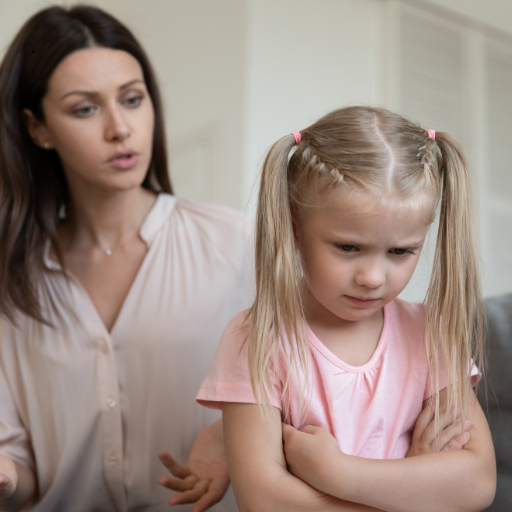Yelling at Kids: Building Connection and Positive Communication

Why does parents yell?
The best answer to this question would be, we become overwhelmed or angry. This makes us raise our voices. But this does not solve the situation; in fact, it does not even correct their behavior or their attitudes. This may quiet the children and make them obedient for a short while but it’s unlikely to make a change.
In short, it teaches them to fear you rather than understand their consequences of their actions.
Children Depend on their parents for learning. If anger and associated hostility like shouting is part of what a child perceives as (normal) in their family, their behavior will reflect that.
What is the effect of yelling?
Yelling makes children more aggressive, both physically and verbally. When we yell, children often copy this aggressive behavior, leading to more conflicts and tension.
Yelling, no matter the situation, is a way of showing anger, and this can create a scary and unfriendly environment for our kids. It frightens them and makes them feel unsafe, leading to a lack of emotional security and comfort at home. Over time, this fear and insecurity can cause long-term emotional problems, like anxiety and low self-esteem.
Additionally, there are more impacts of yelling on children, including:
- Emotional Consequences: Yelling can lead to feelings of insecurity, anxiety and low self-esteem in children. It can damage the parent-child relationship and create a cycle of negative interactions.
- Behavioral Reactions: Children who are frequently yelled at may become more aggressive, exhibit behavioral problems, or withdraw emotionally. Yelling can also teach children that shouting is an acceptable way to handle conflict.
- Long-term Effects: Over time, children may develop stress-related issues, difficulties in school, and problems with social relationships. They might also struggle with their own emotional regulation.
By understanding these effects, we can see why it’s so important to find other ways to communicate that create a supportive and caring environment for our children.
What should we do to stop ourselves from yelling?
Children who have a strong emotional attachment to their parents are easier to discipline. When children feel secure and unconditionally loved, they will be more open to conversation and attentive before a conflict escalates into a heated shouting match.
Here’s how you can practice positive discipline that doesn’t involve yelling:
1. Give yourself a timeout
Catch yourself before becoming so enraged that you lose control and raise your voice. By stepping away from the conflict area for a brief moment, you give yourself an opportunity to reassess and take deep breaths, which will aid in calming down.
This approach also teaches your children about limits and how to handle intense emotions in a constructive manner.
2. Talk about emotions
Anger is a common feeling that we can all learn from if managed properly. By acknowledging all emotions, like happiness, excitement, sadness, anger, jealousy, and frustration, you’re teaching your children that they are all part of being human.
Talk about how you feel and encourage your children to do the same. It will help them develop a respectful attitude towards themselves and others and form healthy relationships in life.
3. Use consequences, but leave out the threats
Threats and punishments humiliate and shame children, making them feel insecure. On the other hand, consequences that address a particular behavior but come with fair warning (like taking a toy away after explaining that toys are for playing, not for hitting) help children make better choices.
This method encourages understanding and making a positive environment for growth and learning.
What to do if you yell
No matter how good your yelling prevention strategy is, sometimes you will raise your voice. That’s Ok. Own up to it and apologize, and your children will learn an important lesson: We all make mistakes and we need to apologize.
- Back-to-School Supplies Checklist for Kids
- Top Personalized Baby Gift Ideas for Every Occasion
- 10 Best Gifts for Dad Who Wants Nothing
- Self Care for Moms: 5 Small Acts That Make a Big Difference
- Best Gifts for New Moms – Zazzle Favorites
- Best Personalized Gift for Teenage Girl
- 20 Most Asking ‘Why my baby’ Tipe Questions That Ask Every New Parent About their baby.
- 10 Positive Parenting Tips For New Moms And Dads
- 10 Examples of Bad Parenting
- Best 100 Unique Names for Your Child in 2025

